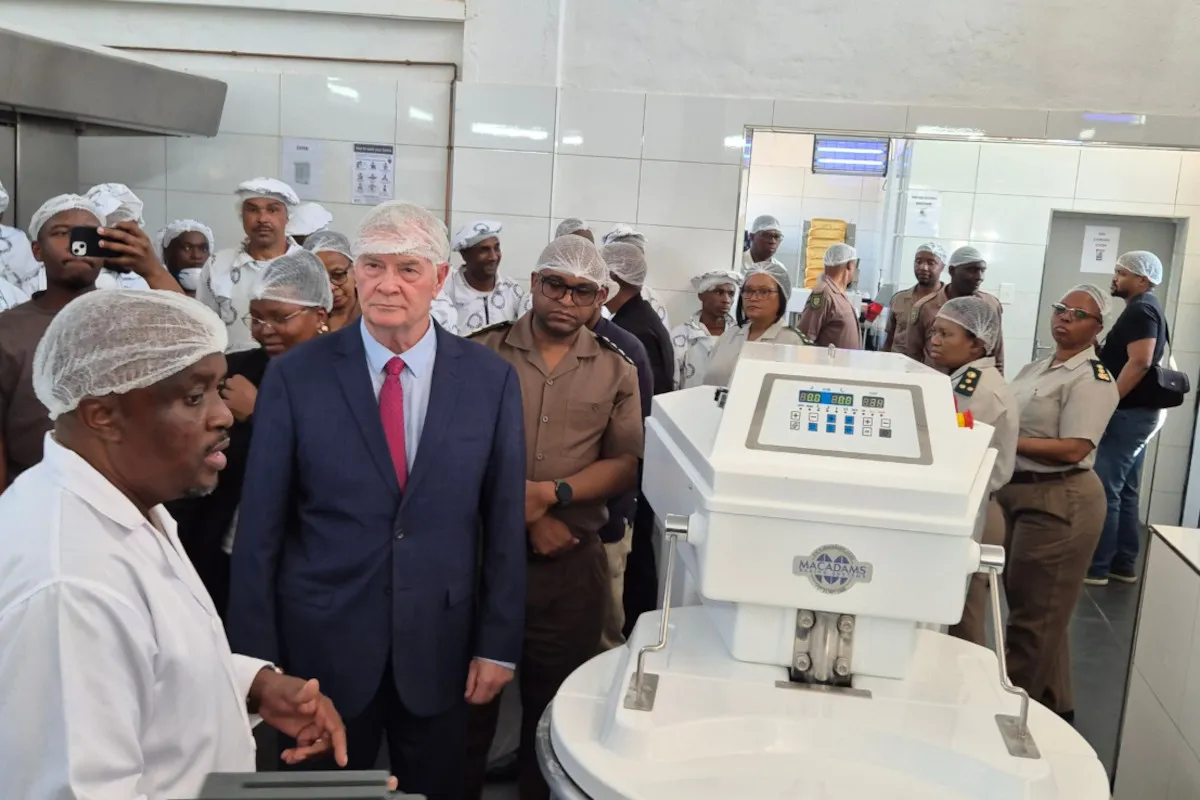
Correctional Services rolls out prison bakeries to cut costs
The Department of Correctional Services has introduced bakery facilities in several prisons across the country to cut costs.

Correctional Services Minister Dr. Pieter Groenewald announced the continued expansion of the department’s inmate-run bakery programme to cut outsourcing costs and promote self-sustainability in South African correctional facilities.
Launching a new bakery at Westville Prison in Durban, Groenewald said the initiative has already saved taxpayers hundreds of millions of rands and will keep growing as part of broader cost-cutting and rehabilitation efforts.
‘Self-sufficient’
“This bakery alone will save R3 million annually for the taxpayer. Across all self-sufficiency projects last year, we saved nearly R500 million,” Groenewald said.
So far, the department has rolled out 13 bakeries across various prisons and plans to expand further.
At Westville, 50 inmates work in shifts to bake more than 3,800 loaves of bread daily at R8 per loaf — far cheaper than the R23 per loaf previously paid to private service providers.
Promoting Skills and Reintegration
Groenewald emphasised that beyond cutting costs, the programme also supports rehabilitation by equipping inmates with valuable skills to help them reintegrate into society after serving their sentences.
Mlindeni Xaba, an inmate working in the Westville bakery, expressed his gratitude for the opportunity.
“I’m thankful to the officials who helped us make better choices. Now I have the skills to open a business once I’m released and support my family,” Xaba said.
Broader Self-Sufficiency Push
The bakery programme is part of a broader self-sufficiency strategy that also involves vegetable farming, abattoirs, and tree nurseries in correctional facilities.
Groenewald stressed the importance of these projects in the face of rising operational costs and a budget cut of R11.7 billion over the past five years.
“We’ll continue enhancing self-sufficiency to lessen reliance on the state and ensure inmates leave with real skills,” he said.
The Department of Correctional Services plans to scale these efforts further, with long-term goals of fully internalising food production and expanding vocational training opportunities for inmates.
